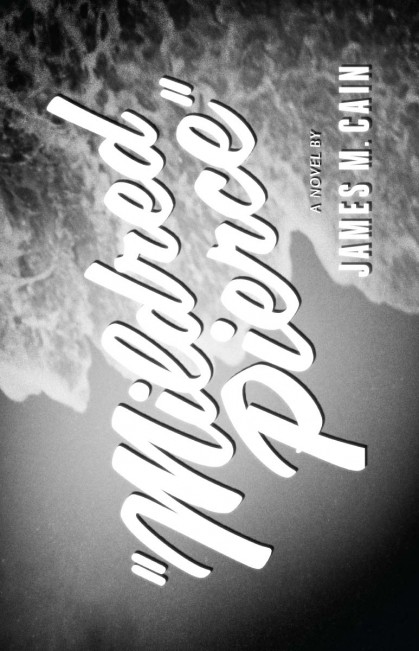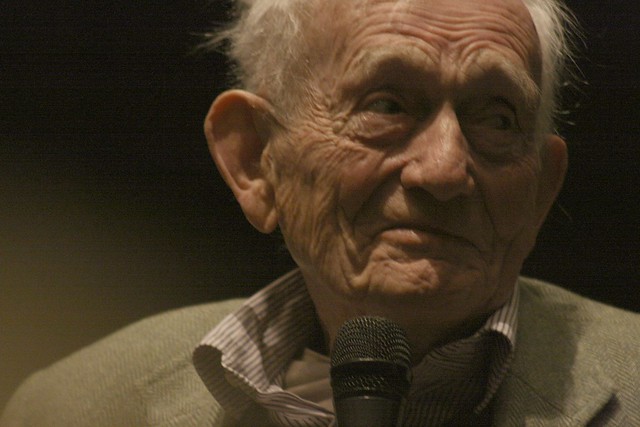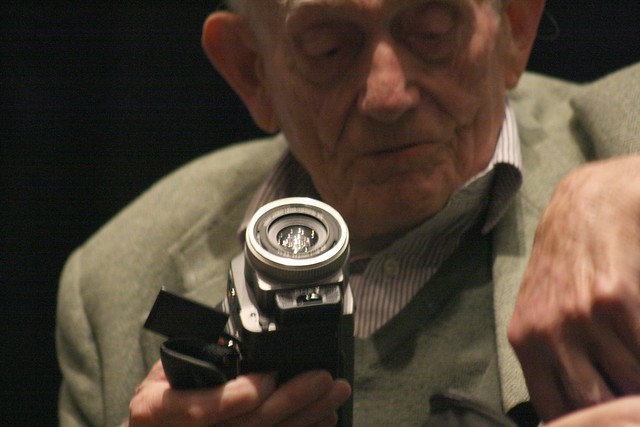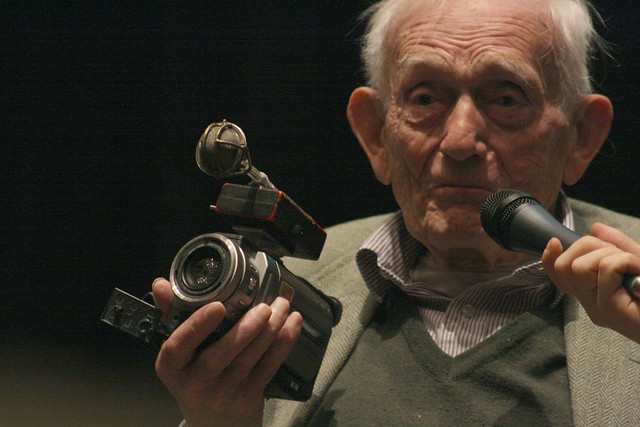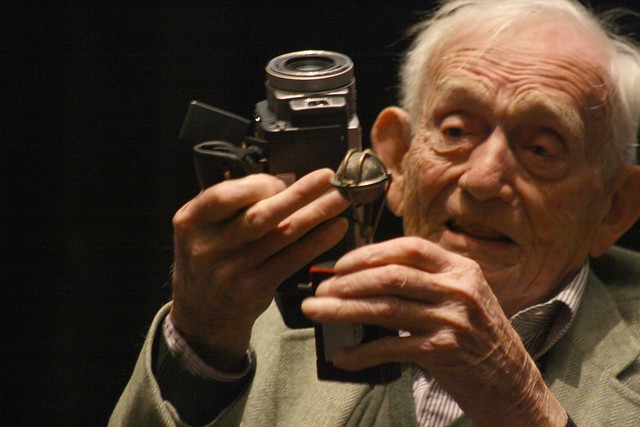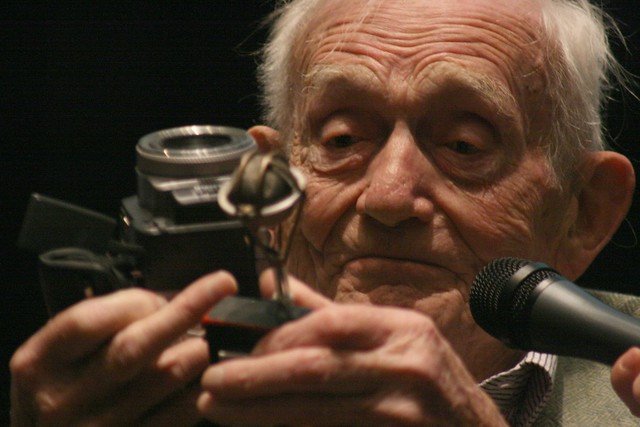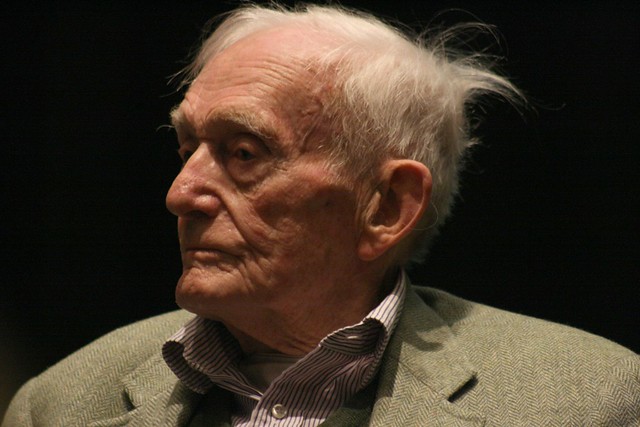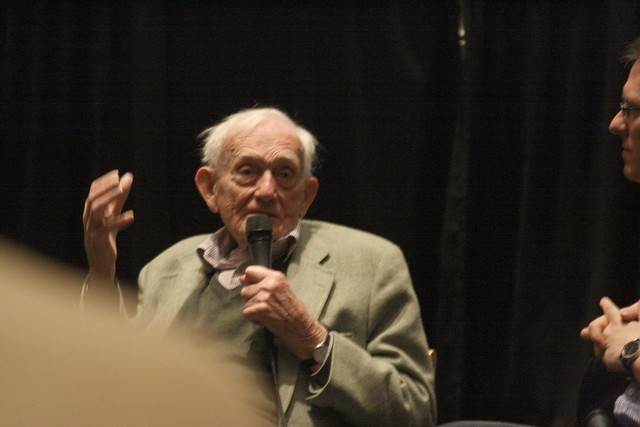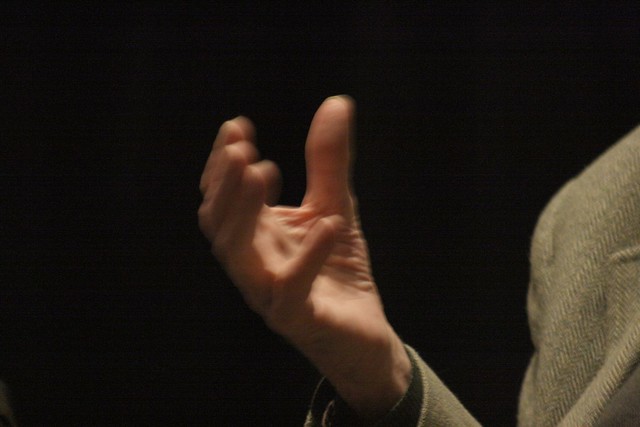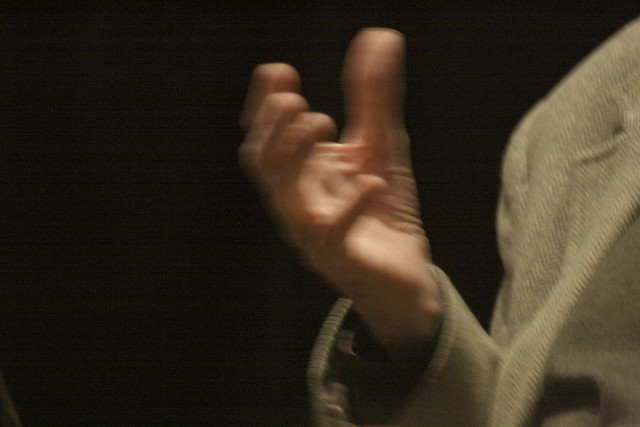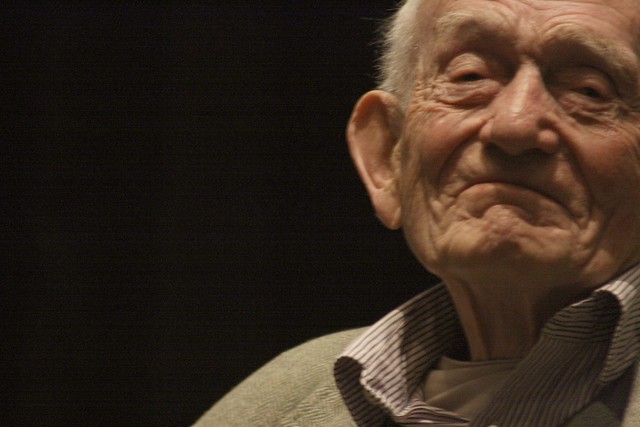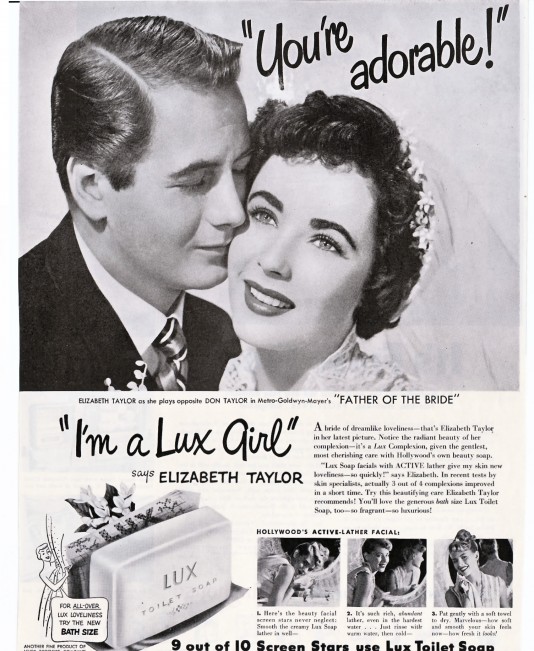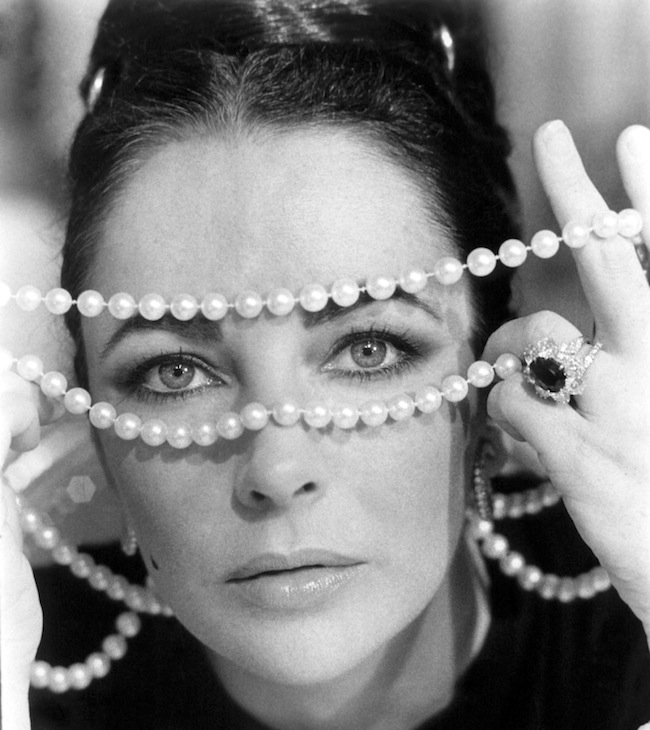Movie City Indie Archive for March, 2011
Jodie Foster’s 5 Favorite Films
 The 400 Blows (Francois Truffaut, 1959)
The 400 Blows (Francois Truffaut, 1959)
Murmur of the Heart (Louis Malle, 1971)
The Deer Hunter (Michael Cimino, 1978)
Truly Madly Deeply (Anthony Minghella, 1990)
The Piano (Jane Campion, 1993)
~ H’wd Reporter, 25 March 2011
New James M. Cain Covers For Vintage
Noir widescreen? More here.
Four Animated Shorts Inspired By SUCKER PUNCH
An eye-pleasing byproduct of Zack Snyder’s write-about-able feature: The Trenches. Below, Dragons, Distant Planet and Feudal Warriors. All animated by Ben Hibon.
http://www.youtube.com/watch?v=TM96TDja_Jo&feature=player_embedded
Read the full article »
Picturing Richard Leacock: HotDocs 2008
In 2008, the HotDocs board of directors’ annual Outstanding Achievement Award went to Ricky Leacock. At the panel “The Feeling Of Being There” on 27 April, he waxed aphoristic in his rich English purr: “Tripods are always in the wrong place”; “All these young filmmakers around, it’s so weird“; and of “fly-on-the-wall” documentary-making, “Flies aren’t very intelligent. You have to know what you’re looking for. You’re looking for the moment.” For a 34-image slideshow including additional images, click here. [Photos: © 2008-11, Ray Pride.]
The Film Cricket Who Sees With His Ears
Reviews at BlindsideReviews.
Richard “Ricky” Leacock Was 89
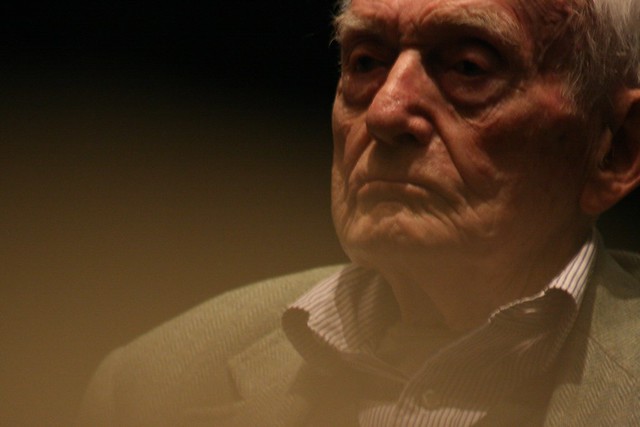
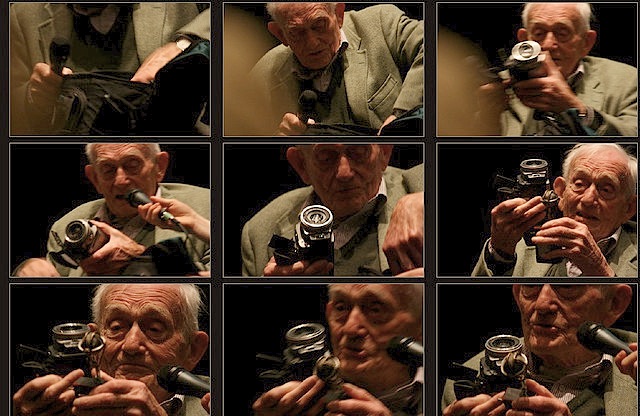
A nice compendium of the documentary pioneer’s career from Flaherty to Primary and beyond from AJ Schnack here. Leacock’s site.
[Photos © Ray Pride from 2008 Hot Docs masterclass.]
“Julian Assange: Houseguest”
With “Get Your War On”‘s David Rees as the titular topher. [Via Melville House.]
Walt Disney On “Our Friend The Atom” (1957)
http://www.youtube.com/watch?v=ZcdRQkJulAU&feature=player_embedded
Chris Ware At Length In Denmark
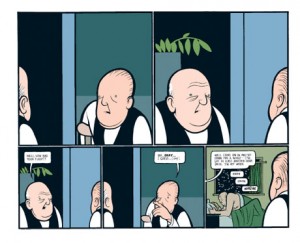 The Comics Journal prints a long interview by Matthias Wivel with Chris Ware: “This interview was conducted in front of a live audience in May 2010 at Komiks.dk, the international Copenhagen comics festival. Ware was an official guest of the festival and his visit coincided with the Danish publication of Jimmy Corrigan: The Smartest Kid on Earth. I concentrated on that book, but also tried to address more general issues in Ware’s work and extended the discussion to his current books.” Quotable: “Fundamentally, it’s an art of composition, the same way that, if you’re a musician or a composer especially, you’re trying to compose something that is coherent and holds together, the same way that our memories are coherent and hold together, but our experiences are not. We take in our experiences and then put them together in a way that makes sense to our personalities and explains our lives and our friends. But the experience itself can be very incoherent and sort of uncomfortable. I guess that sounds pretentious. I should just be telling dumb jokes.”
The Comics Journal prints a long interview by Matthias Wivel with Chris Ware: “This interview was conducted in front of a live audience in May 2010 at Komiks.dk, the international Copenhagen comics festival. Ware was an official guest of the festival and his visit coincided with the Danish publication of Jimmy Corrigan: The Smartest Kid on Earth. I concentrated on that book, but also tried to address more general issues in Ware’s work and extended the discussion to his current books.” Quotable: “Fundamentally, it’s an art of composition, the same way that, if you’re a musician or a composer especially, you’re trying to compose something that is coherent and holds together, the same way that our memories are coherent and hold together, but our experiences are not. We take in our experiences and then put them together in a way that makes sense to our personalities and explains our lives and our friends. But the experience itself can be very incoherent and sort of uncomfortable. I guess that sounds pretentious. I should just be telling dumb jokes.” 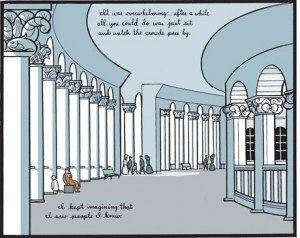 And: “there’s a quote from Goethe that “architecture is frozen music”, and I think it actually applies to comics more than anything, because you’re taking images, making them still, and they don’t actually come alive until you read through them; it’s sort of like reading sheet music in a way. You asked me earlier about the drawing style, and I don’t want the emotion of the story to be in the expressiveness of the drawing; the emotion should be in the story itself; it should be in either how you feel the story as you’re reading it or how you remember it. It’s just an artistic choice I made.
And: “there’s a quote from Goethe that “architecture is frozen music”, and I think it actually applies to comics more than anything, because you’re taking images, making them still, and they don’t actually come alive until you read through them; it’s sort of like reading sheet music in a way. You asked me earlier about the drawing style, and I don’t want the emotion of the story to be in the expressiveness of the drawing; the emotion should be in the story itself; it should be in either how you feel the story as you’re reading it or how you remember it. It’s just an artistic choice I made.
Downloadable: A PDF of Dae Raeburn’s invaluable “Imp” issue devoted to Ware.
Little White Lies 34
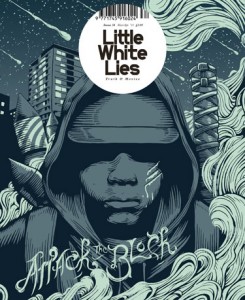 Issue 34 (Mar-Apr ’11) of the ambitious English film magazine Little White Lies is out [blog here] and if you pick it up, please check out my portrait of Duncan Jones (@manmademoon) on page 51. LWL previews: “So what else is in the mag? We’ve gone bonkers for British sci-fi, with an overview of the genre’s forgotten roots and a massive feature that pulls together some of the legends of British science-fiction, including exclusive interviews with Terry Gilliam and Duncan Jones. Our reviews section is also full to bursting, as Doug Liman plays a Fair Game; Jerzy Skolimowski commits an Essential Killing; Jim Loach tastes Oranges and Sunshine; Woody Allen promises You Will Meet a Tall Dark Stranger; Nick Hamm considers Killing Bono; Kevin Macdonald raises The Eagle; Emilio Estevez scouts The Way; Tran Anh Hung hews Norwegian Wood; Werner Herzog explores the Cave of Forgotten Dreams; Richard Ayoade launches Submarine; and Guillaume Canet whispers Little White Lies. Plus there’s interviews with Marion Cotillard, Tran Anh Hung and Richard Ayoade, making LWLies 34 tastier than a Charlie Sheen Tweet.”
Issue 34 (Mar-Apr ’11) of the ambitious English film magazine Little White Lies is out [blog here] and if you pick it up, please check out my portrait of Duncan Jones (@manmademoon) on page 51. LWL previews: “So what else is in the mag? We’ve gone bonkers for British sci-fi, with an overview of the genre’s forgotten roots and a massive feature that pulls together some of the legends of British science-fiction, including exclusive interviews with Terry Gilliam and Duncan Jones. Our reviews section is also full to bursting, as Doug Liman plays a Fair Game; Jerzy Skolimowski commits an Essential Killing; Jim Loach tastes Oranges and Sunshine; Woody Allen promises You Will Meet a Tall Dark Stranger; Nick Hamm considers Killing Bono; Kevin Macdonald raises The Eagle; Emilio Estevez scouts The Way; Tran Anh Hung hews Norwegian Wood; Werner Herzog explores the Cave of Forgotten Dreams; Richard Ayoade launches Submarine; and Guillaume Canet whispers Little White Lies. Plus there’s interviews with Marion Cotillard, Tran Anh Hung and Richard Ayoade, making LWLies 34 tastier than a Charlie Sheen Tweet.”
Mike Mills Video-Diaries SXSW
“Dear strangers, my tour begins. I’m going to try to do some video diaries and some photo diaries along the way, it actually keeps me sane, and much less passive, to find something creative to do along the way. SXSW was so much fun, to all of you who came to only the 3rd and 4th screenings of the film, thank you, I really really loved doing the Q and A’s with you all. To the 3 lovely volunteers who got on stage with me and pretended to be Ewan McGregor, Melanie Laurent, and Christopher Plummer for me, (boy wasn’t that intimate!) I meant everything I said to you. So, here’s my first video diary where you’ll meet some of the people and places that I visited, including really strange local birds that make sounds like digital recordings, the cutest kid in Texas, and communicating with pepper shaker and some crackers.”





